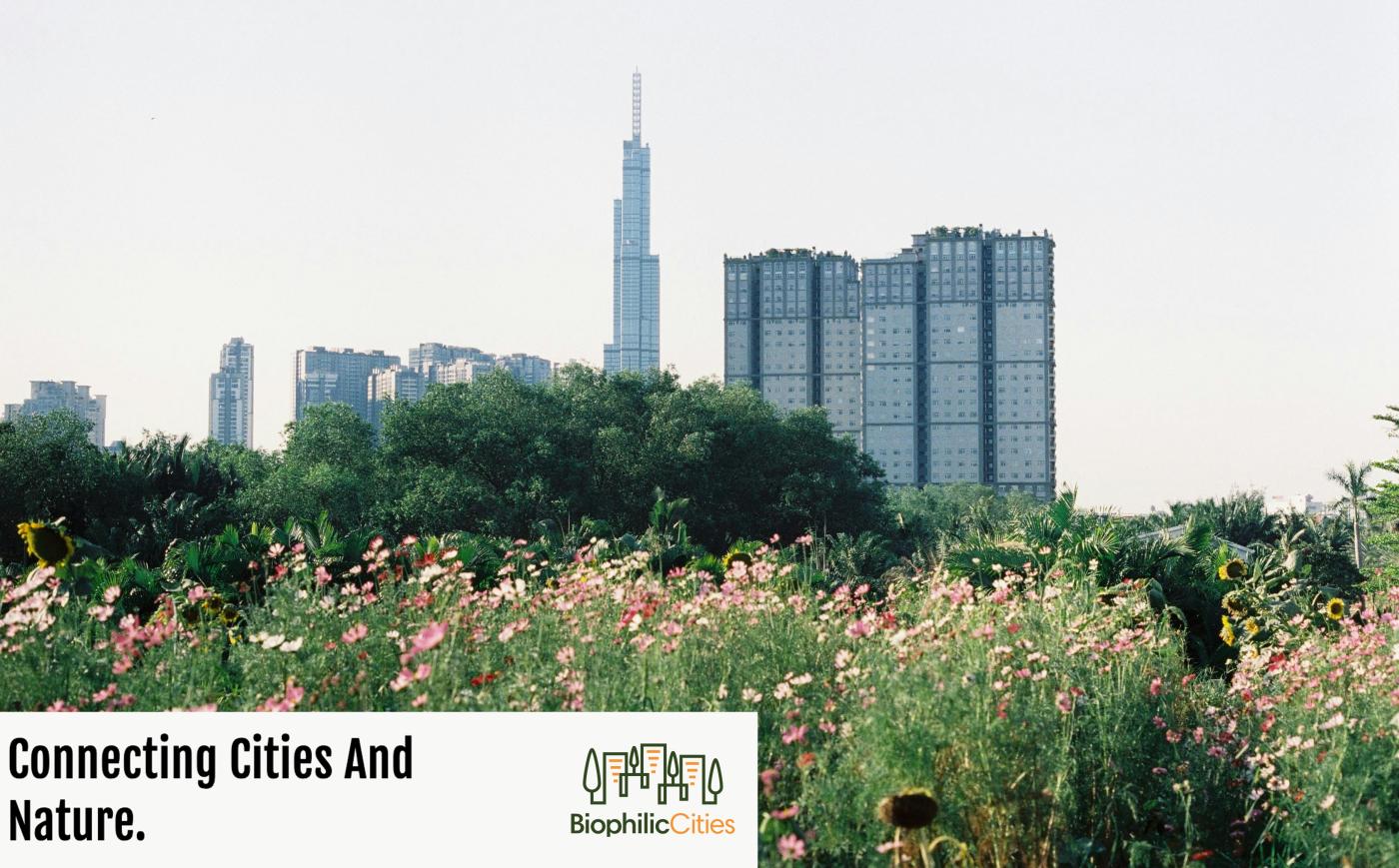
The Richard King Mellon Foundation Supports UVA’s Biophilic Cities to Develop a Framework for Investing in Nature-based Urban Projects

Biophilic Cities, directed by Dr. Timothy Beatley, Teresa Heinz Professor of Sustainable Communities at the UVA School of Architecture, has been awarded a project grant from the Richard King Mellon Foundation to further develop applied research on the positive impact that nature has on cities and their inhabitants.
Biophilic Cities began in 2010 as a research project within the School of Architecture studying the how cities around the world were planning and designing for human contact with nature. The Biophilic Cities Network (BCN) was launched at a symposium held in 2013 by attending global city leaders who expressed an interest in continuing the exchange and collaborative development to pursue the vision of a natureful city within their unique and diverse ecosystems and cultures.
Since then, the BCN has grown to include more than thirty partner cities, which represent a range of cities that include acknowledged leading global examples, such as Singapore and San Francisco, along with postindustrial cities that are defining a new, nature-based model for future sustainable development. Additionally, the BCN includes non-governmental partners working in hundreds of global cities and more than 4,000 individuals who have pledged to pursue and support planning for nature in their cities.
A collaborative framework of eight “grand challenges” that express the collective aims of the BCN has been developed — a selection of these challenges include: Abundant biodiversity, Equitable access to nature, Markets for social impact, and Nature-based community resilience. The partner cities report annually on projects, programs, and metrics that communicate progress towards biophilic indicators and grand challenges across the BCN.
Case Studies at Scale: Investing in Natureful Cities
A growing scientific library provides evidence of the co-benefits of planning for daily contact with nature, including health and well-being, community resilience, biodiversity, and economic sustainability. Local governments are tasked with responding to the twin crises of climate change and biodiversity loss, while responding to the urgent need for resilient communities where basic human needs are supported through affordable housing, access to healthy food, and environmental justice. Increasingly, these governments are turning to nature-based, biophilic solutions to provide efficient, cost-effective, and multi-beneficial responses to these priorities.

Support from the Richard King Mellon Foundation will allow Biophilic Cities researchers, led by Program Director JD Brown, to develop a framework for the prioritization of funding for nature-based projects to help identify the types of projects that will have the most substantial impact for the amount invested. This decision-making investment framework aims to raise the bar in terms of the design and implementation of nature-based projects while also providing opportunities to connect funders directly with the local governments and communities undertaking work on the ground.
The research team will first develop an initial framework based on research, shared knowledge, and best practices. Following, Biophilic Cities will pilot this newly established framework in three different scales of metropolitan regions and geographic contexts: Charlottesville, Virginia; Pittsburgh, Pennsylvania; and San Francisco, California. With the assistance of local partners and regional stakeholders in each of these cities, the pilot program will identify current biophilic programs and projects that are underway or proposed, alongside underlying laws and policies that support or hinder nature-based projects. The pilot cities serve to help establish the efficacy of the framework for evaluating and deciding among promising projects based on the current state of knowledge, best practices, opportunities for replication, and track record of success.
Community Engagement: An Iterative Approach
Working in and with the three pilot cities of Charlottesville, Pittsburgh, and San Francisco will include various methods of community engagement. The Biophilic Cities research team will follow an iterative approach to community engagement to gradually refine a group of stakeholders who can provide valuable reflections on current practices, measures of success, and opportunities for future impact. Their methods will include the use of surveys, conducting in-depth interviews, and hosting workshops to collaboratively review and refine the framework based on lessons learned.

The engagement and responses from partners will be documented through an accessible online platform that facilitates connections between stakeholders to realize promising nature-based projects: funders, local governments, community advocates, and practitioners with technical expertise.
An Accessible Framework: Informed Decision-Making
In recognition of a growing understanding of the complexities involved in designing and implementing successful and sustaining biophilic projects, the platform will provide a variety of tools for funders to support informed decision-making: an interactive resource library of scientific studies and reports on best practices; a comprehensive database of projects in the three pilot metropolitan regions; an in-depth set of profiles for selected projects within the pilot regions; and a comprehensive final report that explores how the decision framework can be extended and expanded to other cities and regions.
The framework will be accessible both as a comprehensive report and interactively via a platform that Biophilic Cities will develop with the assistance of Shapeable, an entity that supports global network building through the development of iterative online platforms. In addition, the methods and findings of the research will be made available via an open-source journal publication. Director Dr. Beatley wrote, "Nature, should be all around us, integrated into the spaces and places where we spend most of our time: our homes and offices, our urban neighborhoods..."
Nature is not an optional design element, but an essential ingredient in leading happy, healthy, and meaningful lives.
Expanding on their innovative work for over a decade of building partnerships, developing research, and disseminating knowledge, Biophilic Cities' proposed new decision-making framework promises continued opportunities for connecting nature and cities.
|
Image

|
Since 1947, the Richard King Mellon Foundation has funded visionaries with bold ideas to advance prosperity in Southwestern Pennsylvania, and environmental conservation across the United States. Support for Biophilic Cities’ new framework falls within the Foundation’s Conservation program that invests in four areas: habitat conservation; stewardship; activation; and sustainable communities.
Committing more than $1 billion to conserve and restore critical habitats in Pennsylvania and across the United States, the foundation has promoted sustainable economic development and helped to create livable communities.
Learn more about the Richard King Mellon Foundation’s Conservation Program.
